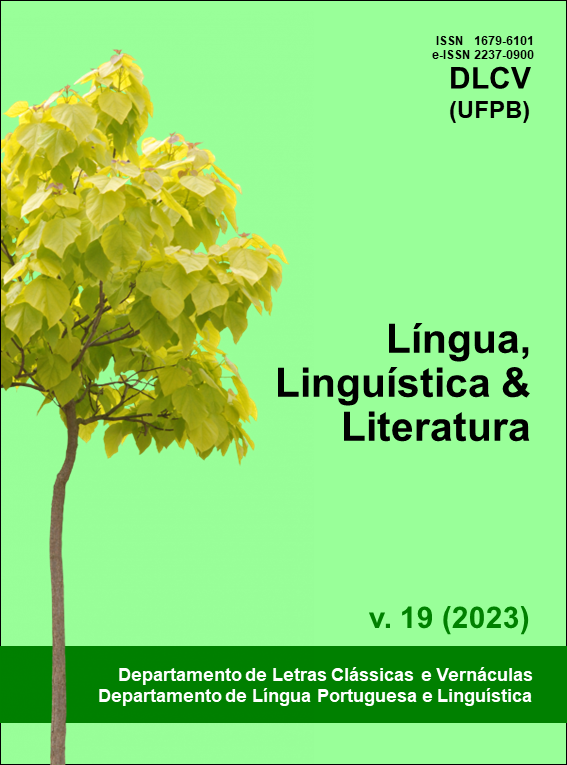A morte do pai em Derrida e Lacan
a ambivalência do significante
DOI:
https://doi.org/10.22478/ufpb.2237-0900.2023v19.65285Abstract
In language, the death of the father, from antiquity until today, has been the main explanation to justify the impossibility of existential origin. For Jacques Derrida, author of the theory of Deconstruction, which was based on Plato's "Phaedrus", where Socrates demonstrates to his disciple Phaedrus the danger of writing for humanity, the paternal murder would be related precisely to this modality of the linguistic sign, for she is not faithful to the logos, the only holder of Truth. Due to its absent and ambivalent condition, writing would consecrate itself as a parricidal or orphan daughter: it would kill the father or abandon him, due to the author never being present to defend his saying. For Jacques Lacan, the death of the father would be anticipated with the death of the logos: speech, precisely, the signifier, in its ambivalent condition, would make the father disappear at each enunciation. The discursive event, thought taken advantage of by Foucault (2000), would cause a scansion in the order of the signifying chain, so that with each lexical fractionation, the meanings would multiply and, in this way, the Truth would disappear. The speech would, therefore, be misleading, when promising the meeting with the father whenever faced with the substitution of the phallic signifier foreclosed from the speech. In the Lacanian perspective, there would be no father, but names, or substitutes, for himself, designated by the psychoanalyst as passwords or angels. Thus, our objective, in this work, is to discuss the father's death in Derrida and in Lacan, showing that, for both, the father's disappearance is related to the ambivalent and simulacrum condition of the linguistic sign. In this sense, our theoretical contribution will fundamentally consist of the thoughts of the authors in question: Derrida (1981; 2002) and Lacan (2011; 2005;1988). Thus, the research uses the comparative method and is located in the field of Discourse and Psychoanalysis.
Keywords: Speech. Writing. Father's death. Psychoanalysis. Speech.
Downloads
Downloads
Published
How to Cite
Issue
Section
License
Copyright (c) 2023 DLCV - Língua, Linguística & Literatura

This work is licensed under a Creative Commons Attribution-ShareAlike 4.0 International License.
Ao submeter originais a este periódico, o autor está automaticamente concordando com as diretrizes editoriais da Revista do DLCV e, além disso, cedendo os direitos autorais relativos aos trabalhos publicados, mantendo para si os créditos da propriedade intelectual e/ou cultural.























